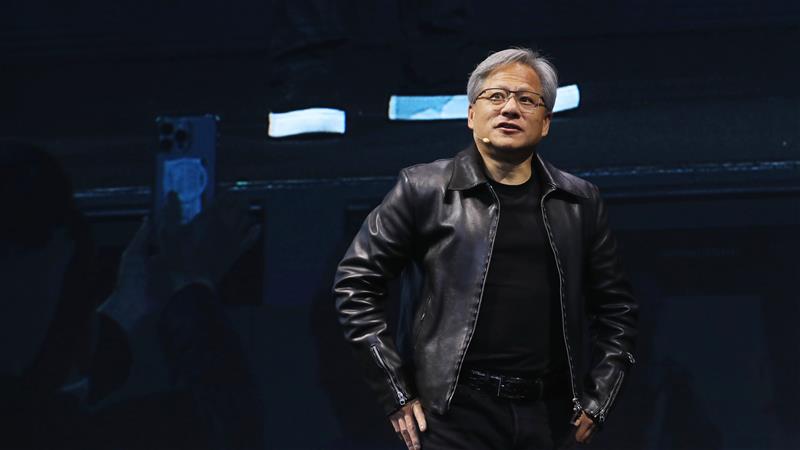
In a CNN interview, Nvidia CEO Jensen Huang dismissed US fears that the Nvidia China-specific AI chips could boost the People’s Liberation Army’s (PLA) capabilities, calling the technology “unreliable” for war.
Even as reports revealed Chinese military-linked entities still obtain Nvidia chips through gray market, and despite US export bans, Huang told CNN that China’s domestic computing capacity – and the chips’ inherent limitations – make them unfit for military use.
For the CEO of the recently $4 trillion valued giant, the US overzealous restrictions threaten emboldening Chinese competitors, such as DeepSeek. Prior to his high-stakes China visit, Huang will shuffle between tensions of lucrative AI partnerships and US national security red lines.
Nvidia’s China revenue plunged 50% under sanctions.
China’s Military and Government Acquire Nvidia Chips Despite US Ban
Huang openly challenged the growing fear in Washington that AI chip Nvidia products would end up in Chinese defense systems.
“They simply can’t rely on it,” Huang told CNN. “It could be limited at any time; not to mention, there’s plenty of computing capacity in China already.”
Despite sanctions, some of the Nvidia China-specific AI chips are said to have made their way into Chinese institutions and military organizations. The selling of Nvidia’s significant chips to Chinese companies has been banned by the US due to fears, but enforcement is difficult, and the gray market persists. Excluding this, Huang opposed the policy, believing that the prohibition might damage America’s international tech reputation.
“We want the American tech stack to be the global standard … in order for us to do that, we have to be in search of all the AI developers in the world,” Huang explained.
That comment summarizes a growing fear from tech executives: Nvidia CEO warns U.S. chip controls boost Chinese AI rivals. Huang believes that isolating China could potentially make its native chip makers even more powerful.
Twisted Ties for Business
In May, Huang reported that the NVIDIA China revenue impact had been catastrophic, with US export controls cutting its Chinese market share by up to 50%. Therefore, Nvidia followed the path of creating another China specific AI chip that will comply with new strict US rules.
The focus currently is on Huang’s expected trip to China this year despite recently meeting with President Donald Trump. Especially that his American counterparts warned him from visiting any firms linked to China’s intelligence or the military.
“He needs to walk a proverbial tightrope to make sure that he doesn’t rattle the Trump administration,” said Daniel Newman of The Futurum Group.
However, cautioned Newman, it is not easy to rule out the potential for Nvidia chips to enable China’s military AI platforms, especially with continued US China export controls.
DeepSeek, the Chinese startup that has military connections is an example. Despite using Nvidia chips in the company, Huang argued that the open-source nature of its R1 reasoning model was warranted, terming it “revolutionary” as it has allowed startups, as well as countries, to test AI.
Final Thoughts
Huang advocated for interdependence and global competition instead of limited restrictions that can affect the whole tech and chip industry. As new Nvidia China-specific AI chips are developed even during tensions, that balance between interdependence and competition will be the key to the future of AI, and Nvidia should lead this conflict and put the tech industry on a safe shore.
“The fact of the matter is, [China and the U.S.] are competitors, but we are highly interdependent, and to the extent that we can compete and both aspire to win, it is fine to respect our competitors,” he pointed out.
Inside Telecom provides you with an extensive list of content covering all aspects of the tech industry. Keep an eye on our Tech sections to stay informed and up-to-date with our daily articles.